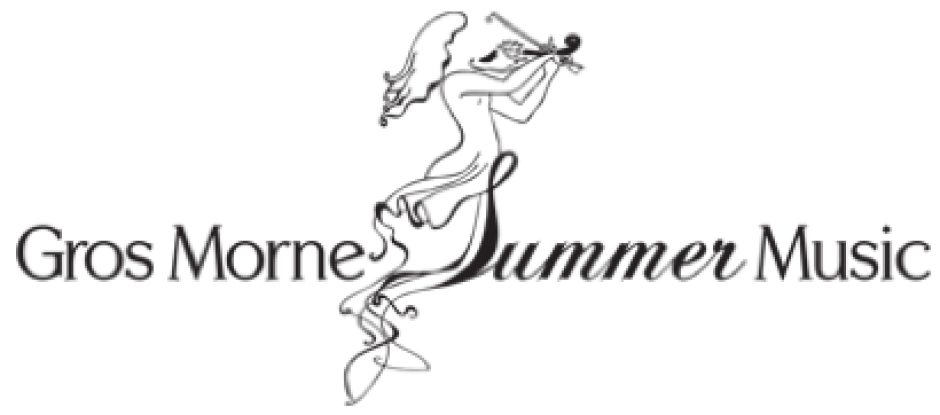Overview
Summit dates: November 22 – 24, 2019
Registration deadline: Extended to November, 15
Experience this three-day summit that is designed to ignite curiosity, confidence, and enthusiasm within Canadian art-making practices, which are facing a rapidly digitizing world.
By stimulating expansive imaginings of our digital futures — the good and the troublesome — we'll strive to create an ambitious vision for the role the arts must play in fostering creative, inspiring, and humane realities. To mobilize this vision, we will move beyond information-sharing toward concrete pathways to creation, production, and collaboration.
What does the summit offer?
The Arts, Culture, and Digital Transformation Summit moves from world to art to the audience, connecting the expansive with the practical. We will seek the intersection of two fundamental questions: Where are the arts needed in this disrupted world? And, what do the arts need to expand creative visions there? Join in this dialogue with a breadth of stakeholders including artists, arts and culture leaders, technologists, futurists, funders, policymakers, gamers, researchers, capitalists, and Marxists.
Together we will absorb big questions around big data, delve into discoverability, and explore relationships with rapidly evolving audiences. We will investigate new modes of reality and new ways of making and disseminating creative expressions. We will encounter Indigenous views and practices, and explore how Indigenous voices inform our digital landscapes. We will seek to understand how Canada’s digital arts opportunity connects to larger strategies for our nation as a whole.
Throughout the summit, an ongoing evaluation will surface key themes and concerns in conversations, and structure responsive dialogues. With luck, we will find ourselves in a transformational moment for how we might imagine, create, and occupy our digital selves and the worlds they call forth.
Who should attend?
We welcome all who seek to contribute to a national conversation around the emerging pressures and opportunities arising in a hyper-digitized world, and how we find and make meaning there. The summit is aimed at a cross-section of cultural leadership including:
- Artists seeking to find the audacity to dream of the digital world with a critical, enthusiastic, expansive lens; while seeking increased practical literacy on how to navigate the wild world of digital opportunities
- Cultural leaders seeking to adapt and evolve organizations, institutions and companies towards the realities of an increasingly digitized world
- Technologists looking to build new practices and networks
- Researchers eager to understand the emerging complications and opportunities surrounding digital literacy
- Policymakers and funders striving to navigate the disrupted landscape of audiences, practices, indicators, and industries
- Everyone who has come to realize the need to build new networks, new literacies, and new enthusiasm for a world that is increasingly of our own making
Sign up for our newsletter for summit and speaker updates!
Welcome Messages
We welcome you to the Arts, Culture, and Digital Transformation Summit at Banff Centre for Arts and Creativity.
Director and CEO, Canada Council for the Arts - Simon Brault
Minister of Advanced Education, Province of Alberta - Demetrios Nicolaides
Mayor, Town of Banff - Karen Sorenson
Vice President of Arts & Leadership, Banff Centre - Howard Jang
Summit Overview
Day 1: The Big Horizon
The Arts, Culture, and Digital Transformation Summit at Banff Centre explores four key areas, evolving from the expansive to the practical over three days.
disruption. ideas. art. (AX)pectations.
We live in an era of self-driving car crashes, rigged elections, post-truth media, and the biggest wealth gap in history. Wasn't technology supposed to be good?
Today, we explore the breaking dream through the lens of big data, emerging digital identities, and the perspective of Indigenous practitioners.
Day 1 – Morning
Keynote: Calibrating the Disruption
Uncertainty surrounding the depth of digital disruption makes us question whether we have new tools for the same ends, or if something far deeper is at work. As technology infiltrates the many corners of our lives, diagnosing our digital disruption becomes a pressing concern. Hear one of the world’s sought-after thinkers contemplate our rapidly digitizing existence.
The keynote address will be immediately followed by an interview between the keynote speaker and a member of the summit leadership team, weaving questions pertaining to summit themes prevalent to days two and three into a conversation spanning global views, artistic practice, and audience experience.
The morning will conclude with a general Q&A discussion with the audience, as well as conversations facilitated through smaller group discussions.
Day 1 – Afternoon
Launchpad Discussion: AI, Reality, and Ethics
Nothing has come to represent our digital anxieties like artificial intelligence. Is this the robot apocalypse or the tool we’ve been dreaming of since we first tamed fire? This session explores AI – how it works, how it replicates and revolutionizes our real worlds, the ethical challenges it raises, and the implication of agency that arises for all humans except a very select few.
Presentation: Being Online – Identity, digital identity, and the forces that shape (and own) us online
We all live online in ever-increasing ways – from those without internet access existing as mere statistics, to those whose material and existential purposes are inseparable from online platforms. How are we defining our digital identity versus our ‘other’ identity, what are the forces shaping digital identity, and how do they differ from more traditional contexts in which our identities emerge?
Panel: Agency and Voice in Response to a Digitized World
The offline world has been proficient at marginalization, oppression, and exclusion. In exploring the question of marginalization and the digital world, we ask whether the digital world is replicating or magnifying our past, or if it can offer unique agency to marginalized voices to escape this pattern.
Panel: Ideas into Practice
The sprawling ideas, anxieties, and possibilities addressed over day one find their way into artistic practice. Three leading practitioners from around the world carry us into the wild world of art-making in a digital world. Join our guest artists in an exploration of how these expansive themes find unique platforms in digital creation.
Day 2: The Practical Work
As governments the world over transform arts policy and funding mechanisms for digital life, we contemplate the ideas and assumptions that lie behind this transformation. A surprisingly long history of digital arts in Canada informs our understanding of where we are on the continuum, how we fare globally, and where our future lies.
The perspective of artistic practice has sometimes struggled to make it into our digital strategy discussions. In moving our practices into emerging spaces, we illuminate key challenges and opportunities associated with making the often-not-so-magic leap.
Day 2 – Morning
Banff – The Third Space
Former Director and Executive Producer of the Banff New Media Institute, Susan Kennard shares reflections on the evolution of the Banff New Media Institute. This presentation highlights hopeful experiments, thematic debates and the high altitude culture of engagement, creativity and risk-taking curated and designed by the Founder and Creator of the Banff New Media Institute, Sara Diamond.
Launchpad Discussion
Learn about best practices and worst nightmares. Follow the developmental path of a theatre artist, director, and dramaturge who shares the often-humbling insights of creating new work amidst the rapid proliferation of digital affordances.
Day 2 – Afternoon
Panel: Systems Change – Digital disruption and funding development, a global view
Countries around the world are experimenting with new approaches to policy to keep up with digital disruption and, ideally, to get ahead of the curve. Starting from the viewpoint that keeping up requires concerted efforts among policy-makers, funders, and practitioners, this panel will explore the design and impact of recent policy and funding approaches in Canada, the U.K., and Europe.
Panel: Industries Colliding or Cross-Sector Collaboration
The swift tide of cognitive habituation and ‘novelty malaise’ in the digital age is daunting, especially for small and mid-scale players who can't afford to invent new platforms and forms with every project. This panel explores the challenges in bridging the divide between the creative industries, as gaming and tech advancements provide tantalizing and challenging opportunities that don’t always align with the culture and constraints of Canadian arts practices.
Presentations: Practitioner Pecha Kucha
20 images. 20 seconds. Hear from an array of artists who have braved the worlds of digital transformation, bringing the challenges and opportunities of digital art making into their own practice.
Day 3: Great (AX)pectations
Digital landscapes are changing our audiences, their preferences, their patterns and their expectations. Online streaming, shifting artistic forms, and AI management of information systems are producing urgencies and rapidly evolving questions when it comes to our relationships with and understanding of audiences.
The structure of the Arts, Culture, and Digital Transformation Summit is designed to maximize emergent ideas and dialogue and employ strategies to capture salient themes throughout. The final day includes a yet-unprogrammed session, allowing us to workshop priorities as determined by you, the summit participant.
Day 3 – Morning
Presentation: What is a ‘Good’ Audience and When Are They Not?
Digital disruption doesn’t just mean new things for artists to learn, but the audience as well. New modes of expression mean new roles for the audience to play, and new skills needed to play them. What are the implications of this fluid reality for audience engagement and the development and dramaturgy of new work?
Presentation: AR, VR, MR, and the Fluidity of Reality in Digital Arts Practices
This session explores the evolution of the audience experience through work that is curated, location-specific, and features interactive prototypes proposing audience interactions with emerging technologies in augmented reality, virtual reality and mixed reality encounters.
Panel: The Interacting Audience
This panel explores themes of audience interactivity, authentic invitation, high-risk versus low-risk interactivity, directed versus self-directed interactivity, and laying out the rules of engagement.
Panel: Incubating Infrastructure
Exploring the infrastructure response to our digital curiosities, this panel discusses how to optimize the technical and human resource dimensions of our facilities in order to incubate efficient and adventurous experimental processes. The panel will highlight best practices from Canada, the U.K., and Europe as we look to see what’s missing in the Canadian landscape and how we might fill that gap.
Day 3 – Afternoon
Panel: Creative Technologies Beyond the Screen
While always a component of digital innovation, the pace at which creative technologies are extending beyond the screen-based world is accelerating, impacting design, fashion, performance, and production. This panel will explore how novel software and hardware, including advanced robotics, manufacturing technologies, projection, sensing, AI, and mixed realities impact the creative sector. In particular, the panel will focus on how these techniques are part of an ever-evolving relationship with audiences.
Panel: Discoverability
As machine-learning becomes an essential go-between for humans and their worlds, ensuring compatibility and coherence of metadata strategies requires significant overhaul of current marketing, promotion, and classification practices. How do we lead such a process in order to keep Canadian arts visible and thriving in a digital world?
Closing: The Way Forward
The goal of this summit is to inspire dialogue amongst a gathering of esteemed colleagues and artists across the three days, which will uncover and identify emergent themes, and highlight critical areas of discourse that remain urgent. These elements will be brought forward as a means of ratifying outcomes and focusing on opportunities for spin-off workshops and gatherings.
Itinerary
View the regularly updated schedule of events and find event details.
Free Summit Activities
Virtual Reality, Art Installations, and Performances will punctuate the sessions of the Arts, Culture, and Digital Transformation summit. These activities are open to the public and offer an insight into work being done in these highly relevant fields.
Speakers & Moderators
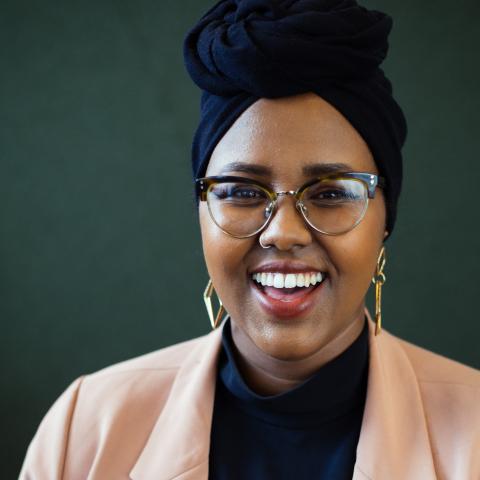

Nasma Ahmed
Speaker
Nasma Ahmed is a technologist based in the city we now know as Toronto. Nasma is currently the Director of the Digital Justice Lab, the mission is to build towards a more just and equitable digital future. She has experience working alongside the public service and the non-profit sector, focusing on technology capacity building. In 2017 she was an Open Web Fellow with Mozilla and Ford Foundation, focusing on organizational digital security. She is passionate about community engagement, knowledge translation, and speculating the possibilities of the future.
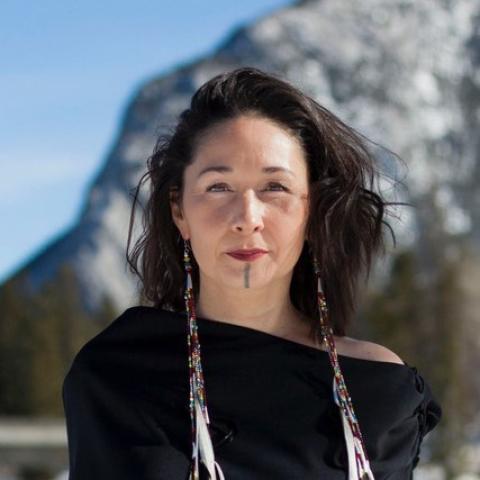

Reneltta Arluk
Director of Indigenous Arts
Reneltta is an Inuvialuit, Dene and Cree woman from the Northwest Territories. She is a graduate of the University of Alberta’s BFA Acting program and founder of Akpik Theatre, the only professional Indigenous Theatre company in the NWT. Akpik Theatre focuses on establishing an authentic Northern Indigenous voice through theatre and storytelling. Raised by her grandparents on the trap-line until school age, this nomadic environment gave Reneltta the skills to become the multi-disciplined artist she is now. Reneltta has taken part in or initiated the creation of Indigenous Theatre across Canada and overseas.
Arluk is committed to stories inspired by Indigenous language and has worked in-depth with Indigenous and minority youth through her theatre advocacy work. Under Akpik Theatre, Reneltta has written, produced, and performed various works focusing on decolonization and using theatre as a tool for reconciliation. This includes Pawâkan Macbeth, a Plains Cree adaptation of Macbeth written by Arluk on Treaty 6 territory. Pawâkan Macbeth was inspired by working with Owen Morris and his students on the Frog Lake reserve. In 2017, Reneltta became the first Inuit and first Indigenous woman to direct at The Stratford Festival. She was awarded the Tyrone Guthrie - Derek F. Mitchell Artistic Director’s Award for her direction of The Breathing Hole by Governor General Award-winning playwright, Colleen Murphy. Reneltta is now Director of Indigenous Arts at Banff Centre for Arts and Creativity.
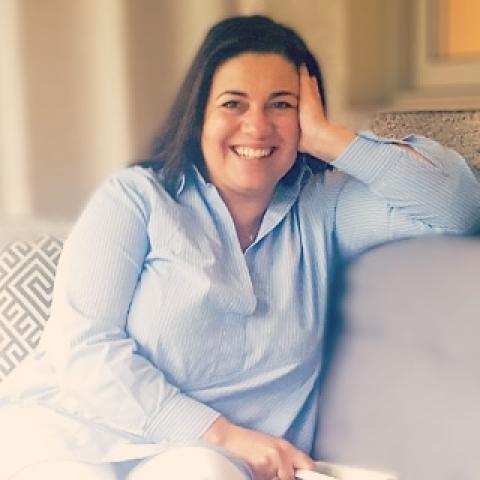

Akoulina Connell
Akoulina Connell is an experienced executive and arts advocate who catalyzes systems transformation through co-creation and data innovation strategies to increase agility, transparency, inclusion, and public engagement.
She has worked in both the public and private sectors; has led two provincial funding agencies; was managing editor of a literary press; worked in the IT sector; and has held communications roles in several federal departments.
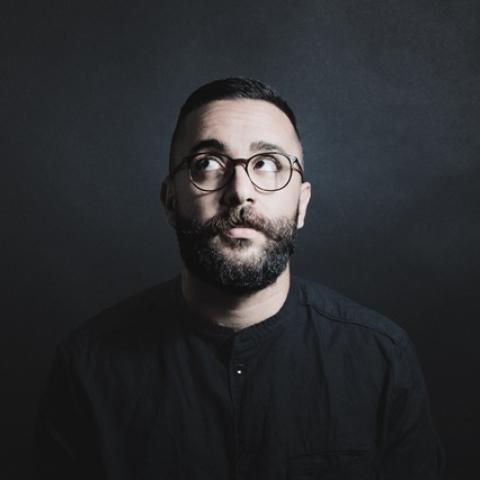

Ashkan Fardost
Sweden, the late 90s, a quiet Stockholm suburb. A teen who dreams of being a music producer has just gotten his hands on the first piece of production software capable of rivalling a professional setup. At the time, he is a weirdo – listening to trance, claiming to make music while sitting quietly in his room, refused by every label who gets his demo CDs in the mail. Then, Napster happens.
From aspiring teen creator to semi-hacker to music producer working with the greats, from a PhD in organic chemistry to collaborations with Hyper Island and the Stockholm tech scene, to the starting-up of Oddball Ventures, and from this diverse portfolio to TEDx and a nomination for Sweden’s Speaker of the Year 2017, Ashkan has not only lived the evolution of the internet, but has seen it through angles few else have. He is set apart by his insights into the internet as a psychological, sociological, and anthropological phenomenon that changes the entire dynamic of the world.
Standing on the shoulders of great philosophers and sociologists, he begins by uncovering what it means to be human. With the help of anthropology, he then shows us what catalyzed human civilization and what continues to power it. Hint: it is all about information technology! Last but not least, he introduces the internet and current technological trends to this model, shedding light on the road we are thundering down – and on how it is changing us for good.
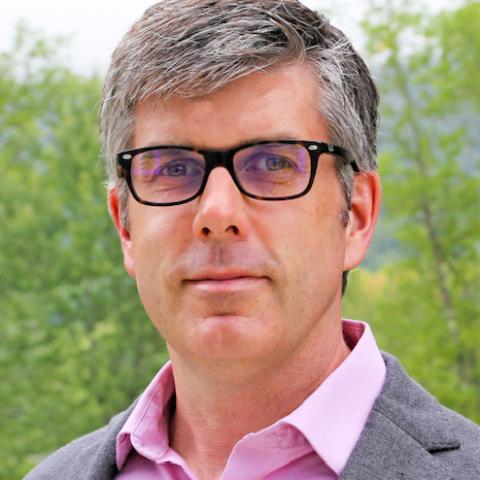

Jamie Gamble
Jamie Gamble is the principal of the Canadian consulting firm, Imprint Consulting Inc. He is also an affiliated consultant with the MaRS Solutions Lab (Toronto), and the TruePoint Center (Boston). Since 2002, Jamie has served organizations involved in poverty reduction, environmental protection, economic development, public health, social justice, citizen engagement, and the arts with consulting in strategy, evaluation, and organizational change.
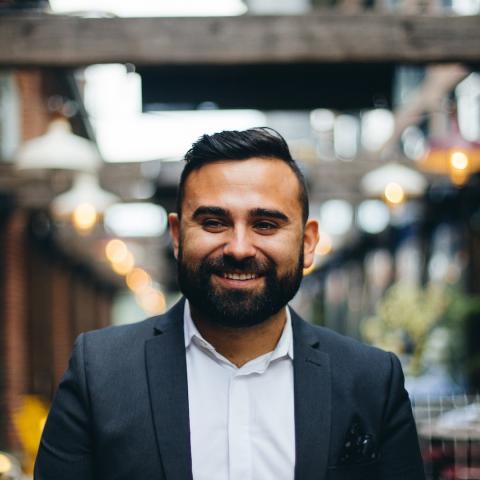

Chalo Hancock
Chalo Hancock is a thoughtful leader with a passion for starting, scaling, and sustaining organizations. He is honoured to join Artscape Daniels Launchpad as the new Managing Director. A clear communicator, proven relationship builder with excellent operational and analytical skills, he is excited to complement the dynamic team at Launchpad. As the co-founder of U for Change, an award-winning charity in Toronto, he helped design the programs which have successfully graduated more than 2,500 young people in the arts. Chalo was also involved in the launch and growth of Christopher Paunil Designs - a celebrated bridal and eveningwear brand with global markets. In 2012, he received a Diamond Jubilee Award from His Royal Highness The Prince of Wales for his outstanding service, and in 2017, he received an Emerging Leader Award from the Lawson Foundation for his work in community building. Chalo’s heart has always been with artists, creatives, and the community.
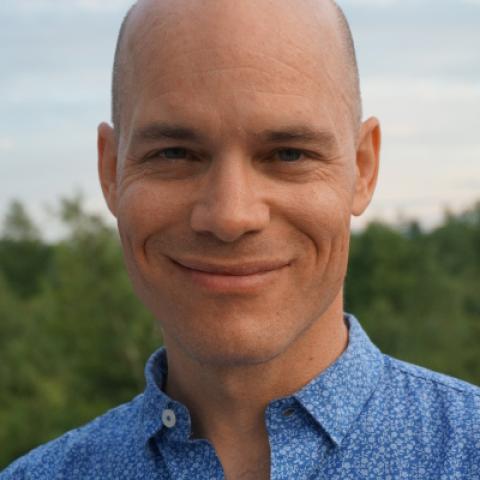

Frédéric Julien
Frédéric Julien has been active in the performing arts for several years as an artist, arts administrator, consultant, advocate, and change maker. He has been leading research and development activities at the Canadian Arts Presenting Association for the last nine years. In this capacity, he directed or authored several key research initiatives such as The Value of Presenting: A Study of Performing Arts Presentation in Canada, Vital Signs: Arts and Belonging, Digitizing the Performing Arts, and Vitality and Impact of Arts Presenting.
An active volunteer, Frédéric has served as Co-Chair of the Canadian Arts Coalition, on the board of Arts Health Network Canada, and his neighbourhood association in Gatineau.
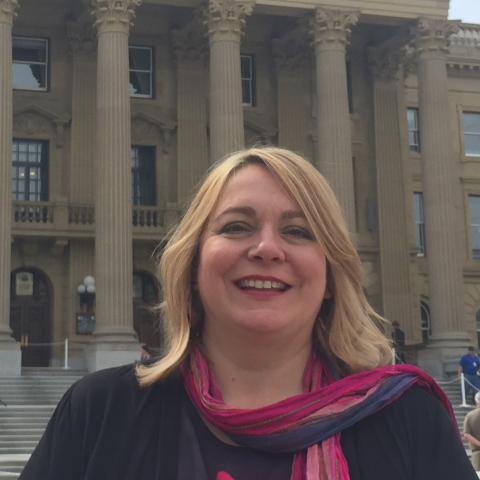

Susan Kennard
Speaker
Currently Susan Kennard is the manager of Heritage Programs with Parks Canada and is responsible for the management of multiple national historic sites, cultural resources, and heritage conservation initiatives in the Banff Field Unit area. This work includes supporting an approach to reconciliation that is informed by Indigenous partners. Susan is on the national board of directors of YWCA Canada and was a member of YWCA Canada’s delegation to the 57th and 59th United Nations Commission on the Status of Women in NYC.
From 1997 – 2009 Susan worked at Banff Centre, initially as the Producer of The Banff New Media Institute and between 2005 – 2009 as the director and executive producer of the institute. While at Banff Centre, Susan co-founded Radio90 – Cellular Pirate Radio an early hybrid net/fm art/pirate/community radio station. Prior to moving to Banff, she worked for Dateline NBC New York, CBC Newsworld, CBC Radio, and started her career in the campus/community radio sector at the local and then national level. Susan completed a Master’s degree in Communication for Development at the University of Malmö, Sweden, on the relationship between contemporary art practice, social change, and civil society in post-war Sarajevo. She holds a BA from the University of Regina, a Graduate degree in Communication Studies from Concordia University, Montreal, and is in the final stage of completing a Diploma in Cultural Resource Management at the University of Victoria.
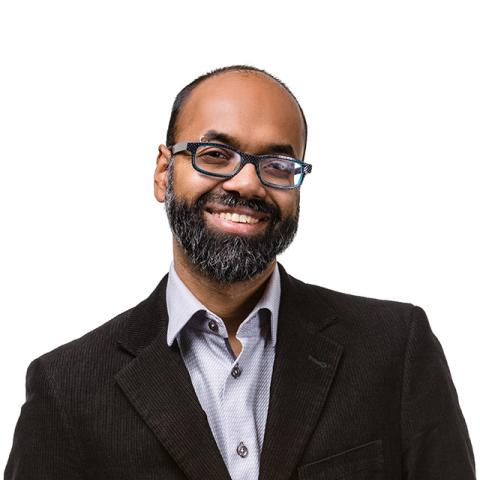

Dr. Richard Lachman
Moderator
Dr. Richard Lachman directs Zone Learning for Ryerson University, Creative Technology Development for FCAD, and the Experiential Media Institute. He is an Associate Professor, Digital Media in the RTA School of Media, and also serves as a Technology and Creative Consultant for entertainment and software-development projects. A Gemini award-winning producer, Richard has worked on many highly successful Canadian and US interactive and convergent-media projects over his career.
Richard completed his doctorate at UNE in Australia studying software recommendation-engines, did his undergraduate work in Computer Science at MIT, and holds a master’s degree from the MIT Media Lab’s “Interactive Cinema” group. He was part of a startup acquired by Mattel, ending as Lead Designer and Lead Engineer for the Petz software with over 3 million units shipped worldwide. The software has received awards from ID Magazine and Communications Arts, was featured in The New York Times, USA Today, and Time Magazine, and was part of an exhibition at the American Museum of the Moving Image in New York.
Richard’s later work in transmedia has garnered a Gemini, CNMA, and Webby Honouree awards, and he has lead collaborative design exercises with UNICEF, TIFF, Penguin UK, Kobo, the CRTC, and others. His areas of research include transmedia storytelling, digital documentaries, augmented/locative/VR experiences, mixed realities, and collaborative design thinking.
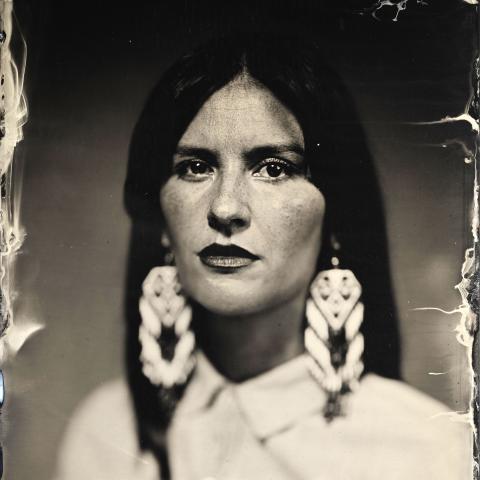

Niki Little
Niki Little | Wabiska Maengun is a mother, artist/observer, arts administrator, and a founding member of The Ephemerals. She is Anishininew/English from Kistiganwacheeng (Garden Hill, FN), based between Win-nipi (Winnipeg, MB) and Tkaronto (Toronto, ON). Her interests investigate cultural consumerism, Indigenous womxn, and community-based initiatives and Indigenous economies.
Niki is the Artistic Director for imagineNATIVE Film + Media Arts Festival. Previously, she was the Director for the National Indigenous Media Arts Coalition where she organized Listen, Witness, Transmit, a national Indigenous media arts gathering in Saskatoon, SK (June 12-15, 2018) that included round tables, performances, screenings, and exhibitions.
As an independent community connector, Niki co-curated níchiwamiskwém | nimidet | my sister | ma soeur, the La Biennale d’Art Contemporain Autochtone 2018 (BACA) in Montréal and surrounding areas (May 3 - June 19, 2018) and co-hosted Migration, a three-week on-the-land residency with Becca Taylor in Demmitt, AB, grounded in exploration around Indigenous economies and research as ceremony (August 13-31, 2018).
Image by Kali Spitzer
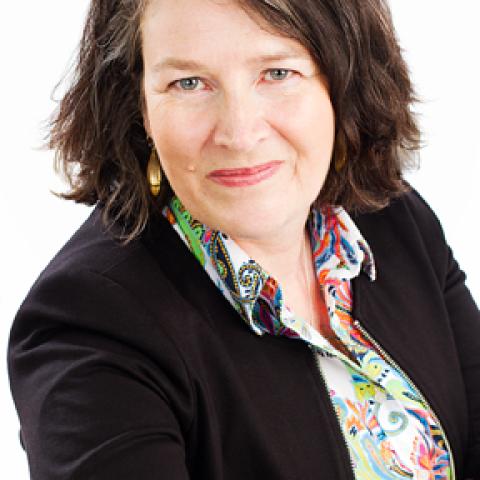

Mary Elizabeth Luka
Dr. Mary Elizabeth Luka
Dr. Mary Elizabeth (“M.E.”) Luka is Assistant Professor of Arts & Media Management at University of Toronto, and an award-winning scholar, activist and digital media producer for arts, social enterprises, broadcasting and telecommunications, and creative management policy, planning, and practice. She studies modes and meanings of co-creative production, distribution and dissemination in the digital age, to investigate how arts, culture, media and civic sectors are networked together. Dr. Luka holds a Connaught New Researcher Fellowship titled Understanding how arts and creative networks operate as pivots for social innovation in Canada, which is digitally mapping 200 arts and culture-based creative hubs and networks. Her Banting Fellowship, From Creative Citizenship to Globally-Networked Cultural Collaboration, launched this comparative international research project examining creative networks and partnerships in Canada, the UK and Australia. Dr. Luka is a founding member of the Critical Digital Methods Institute at UTSC, and a co-applicant on Archive/Counter-Archive: Activating Canada's Moving Image Heritage, a six-year national partnership involving several universities and cultural organizations in the management of marginalized and underrepresented media archives. She partners with Mass Culture to generate cultural research in Canada, and has previously been commissioned by Canadian Public Arts Funders and the Department of Canadian Heritage, among others. Mary Elizabeth is a member of the Advisory Board for Aarhus University’s Futuremaking initiative, co-editor for three special issues of Information, Communication & Society journal featuring international work on internet and social media studies, and Past Chair of the Board for Arts Nova Scotia, past member of Creative Nova Scotia Leadership Council, NSCAD University’s Board of Directors, and the Provincial and Territorial Advisory Group of Cultural Human Resources Council. Dr. Luka is a founding member of the public art and research group, Narratives in Space + Time Society, which intervenes in site-specific spaces to generate art and storytelling practices as modes of civic engagement, including through the use of GIS, augmented reality, digital media, and mobile device software applications.
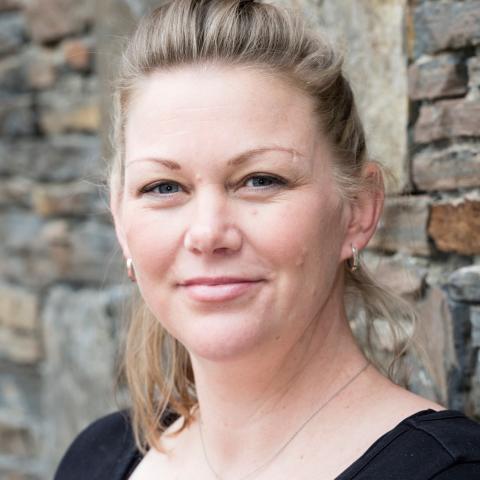

Jean Macpherson
Speaker
Jean is a respected senior arts manager and cultural producer with over 15 years’ experience innovating forward-thinking program design for arts sector programs, residencies, and events. Jean has designed and managed hundreds of arts programs - from performing arts, literary arts, visual arts, and digital - and offers specialization in digital leadership and transformation in the arts sector. At Banff Centre, Jean has provided leadership to the organization’s digital strategies and programs and has led program design in arts, research, and production residencies. A versatile leader adept at nurturing collaborations, she has contributed to the development and management of partnerships with Moment Factory, Sundance Interactive, Against the Grain Theatre, Canadian Opera Company, imagineNATIVE, CBC, National Film Board, MUTEK, San Jose Biennale, and more. Macpherson’s approach program design is influenced by the values of Banff New Media Institute, supporting research, community engagement, creative pluralism, co-creation, the production of new work, and the engagement of artists, performers, and researchers with technology, information, and the aesthetics and literacy of digital culture.
From 2010 to 2015, Macpherson managed Banff Centre's Video Production team, overseeing the development, production, and business affairs of Banff Centre's video content and dissemination strategy. In this role Jean also led training curriculum design and development for students and emerging to mid-career industry film and tv and interactive computation professionals specializing in audio, video, design, and animation. Previous to Banff, Macpherson worked as a marketing officer for community engagement at the National Arts Centre in Ottawa, Ontario.
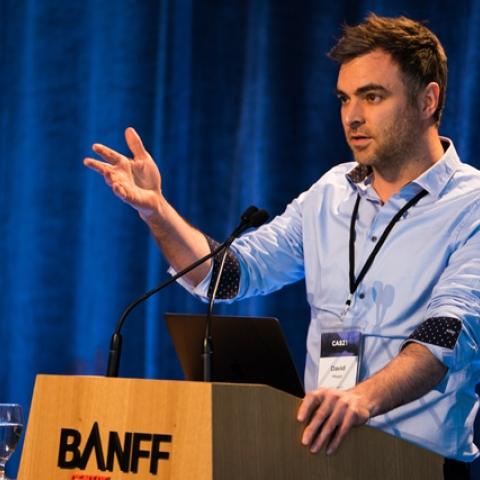

David Maggs
David Maggs carries on an active career as an interdisciplinary artist and arts researcher. He is the founder of and pianist for Dark by Five, has written works for the stage, and collaborated on large augmented reality projects. David is the artistic director of the rural Canadian interarts festival Gros Morne Summer Music, founder and publisher of a digital arts magazine, and the director of The Graham Academy, a youth performing arts training academy.
David developed and co-produced the CBC documentary The Country. As an academic, David focuses on arts practices and the challenge of sustainability. His doctoral thesis Artists of the Floating World led to the SSHRC-funded Sustainability in the Imaginary World led by PI John Robinson. His research attempts to understand sustainability as a cultural challenge and the arts as a driver of social impacts. He has been a featured speaker at the Canadian Arts Summit, The International Transdisciplinarity Conference (Germany), the National Valuing Nature Conference, The American Association for the Advancement of Science, Swiss Federal Institute of Technology (ETH Zürich), and elsewhere.
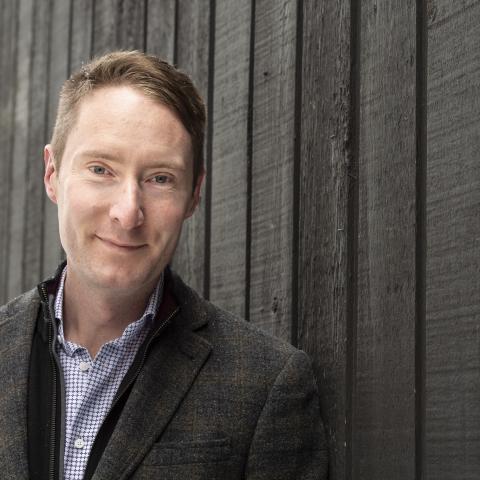

Nathan Medd
Speaker
Nathan Medd oversees performing arts programming at Banff Centre for Arts and Creativity as managing director for music, theatre, dance, and opera. There he wrangles a talented faculty group that includes numerous recipients of Grammy, Oscar, Tony, Olivier, and Juno awards.
Nathan was previously managing director for English Theatre at Canada’s National Arts Centre, where his team was charged with strengthening the organization as a national theatre. In the process, they worked with stakeholders across the land to initiate plans for the world’s first national Indigenous theatre company, launched in 2019.
He has co-founded or consulted on the design of a number of new performance creation facilities across Canada, including a co-op in East Vancouver called Progress Lab 1422; a former CBC staff cafeteria in downtown Vancouver called The Post at 750; and a vibrant performance space in Victoria called the Metro Studio. Electric Company, an acclaimed performance creation ensemble that he guided as managing producer through its international emergence from 2008-2013, was one tenant of these spaces. A dual Canadian and American arts manager, Nathan was raised in a west-coast island village called Qualicum (named for a Straights Salish word meaning “where the dog salmon run”).
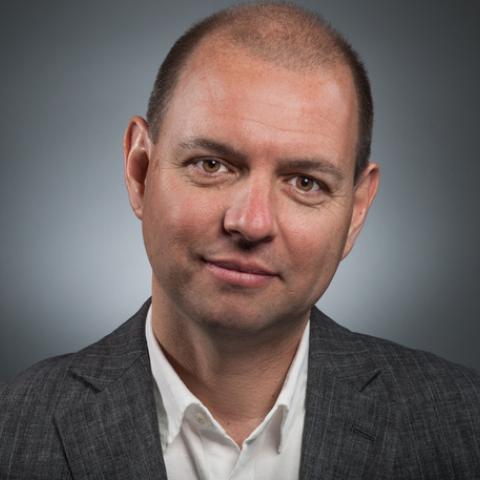

Maurizio Ortolani
Maurizio leads the Digital Engagement team at Canada’s National Arts Centre (NAC) in Ottawa. Their work includes the NAC website, livestreaming, podcasts, recordings, as well as distance learning, and telematic programming — part of the NAC’s, Hexagon project.
The Hexagon project allows the NAC to produce high-fidelity, low-latency interactive videoconferences using research networks like CA*net in Canada and Internet2 across the United States and around the world. The Hexagon project now produces over 50 network-based events each year. Projects include telementoring sessions, public masterclasses, auditions, multi-site symposia, and performing arts lectures. The NAC has produced distance-enabled education and outreach events across Canada, the US, Mexico, Israel, Europe, and China.
The NAC recently completed its architectural rejuvenation project as well as a production facility renewal project. These two important projects made possible an advanced connectivity retrofit. The centrepiece of the infrastructure upgrade is the third iteration of the Hexagon studio, a cutting-edge multimedia studio and control centre connected to all of the NAC’s stages, rehearsal halls, public spaces … and to the world.
The NAC produces six very popular performing arts podcast series, among them the NACOcast and Explore the Symphony. In September 2019, the Digital Engagement team launched a weekly livestream for the popular music series, Fridays at the 4th Stage, as well as a pilot project to stream NAC English Theatre performances to a select number of Canadian university theatre departments entitled, Thursday Night LIVEstream.
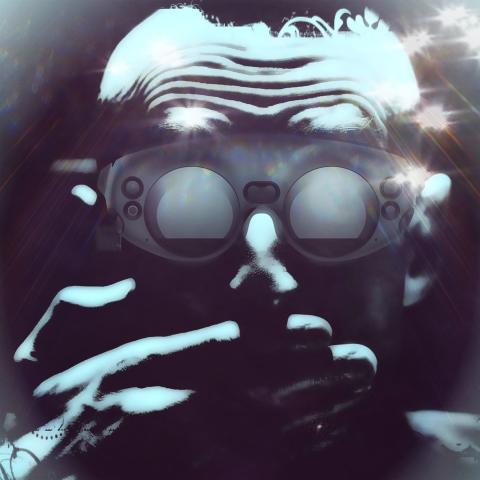

Patrick Pennefather
Speaker
Patrick, recently appointed at UBC’s Theatre & Film program in Production and Design, is passionate about bridging partnerships between various stakeholders in the academic, cultural, service and digital media industries. He has facilitated and organized numerous outcome-driven workshops in the resource, entertainment and educational sectors and at conferences like CVR, SXSW, GDC, SIGGRAPH and IndieCade. He’s developed a successful rapid prototyping methodology focused on mentoring teams co-constructing scalable digital prototypes with over 45 companies and organizations (Microsoft, EA, Ubisoft, Blackbird, Finger Foods, Kabam and more) over the past ten years with sessions focused on aligning priorities, research initiatives, vision, strategy, problem-solving and scalability. Institutionally, he has designed and implemented learning with the Master of Digital Media Program, BCIT, Ryerson University, University of Wuhan, Chinese University of Communication, North Chinese University of Technology, UBC and SFU. Within the digital media industry he has facilitated small teams internationally, with Riot Games, EA, Microsoft Big Park, Fujitsu, Procon Mining Safety, Crystal CG China, the City of Fukuoka, NGX, Ballet BC, British Columbia Museum Association, Arts Club Theatre, and British Columbia Lottery Corporation. His research interests and scholarly activities are focused on rapid prototyping for mixed realities as well as designing spatial audio in physical and virtual environments. Whatever the pursuit, he draws from his work as an award-winning sound designer and composer for live and mediated productions having worked on over 250 productions in Canada, the U.S., Europe and Asia.
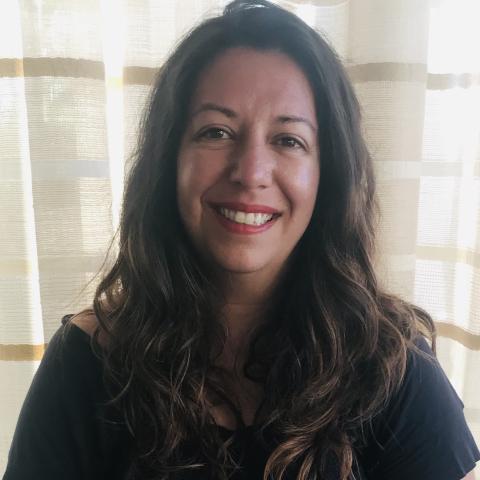

Saltzman, Devyani
Devyani Saltzman is a Canadian writer, curator and arts leader with a deep practice in multidisciplinary programming at the intersection between art, ideas and social justice. She was most recently Director of Public Programming at the AGO, working across all disciplines, where she increased engagement across broad and diverse audiences and shaped the museum as a forum for discourse, reflecting community and the narratives of Torontonians. Saltzman was previously the Director of Literary Arts at the Banff Centre, as well as a founding Curator at Luminato, North America's preeminent multi arts festival. She is a published author and her work has appeared in The Globe and Mail, National Post, The Atlantic and Tehelka, India's weekly of arts and investigative journalism. She is the Vice Chair of the Writers’ Trust of Canada, and sits on the Board of Directors of the Ontario Association of Art Galleries, SummerWorks Performance Festival and Nova Dance. Saltzman has a degree in Anthropology and Sociology from Oxford.
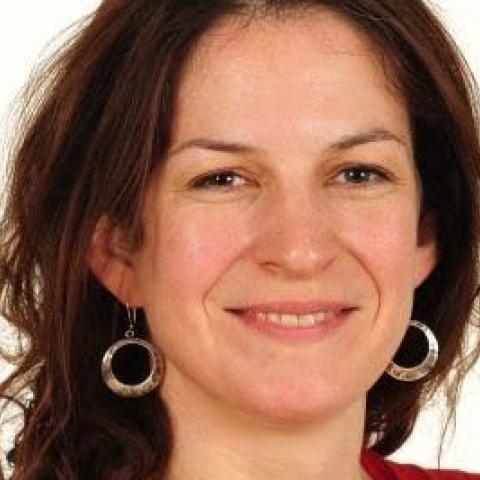

Fran Sanderson
Fran heads up the Arts and Culture Programmes and Investments team at Nesta, including Arts and Culture Finance, which makes impact loans to arts and culture organisations through the Arts Impact Fund and Cultural Impact Development Fund. The team works on various projects with the aim of understanding and articulating the full breadth of impact of arts, culture, and the creative economy; promoting innovative funding and business models and partnerships, such as blended finance, impact investing and crowdfunding; improving understanding of and access to the positive impacts of arts and culture; and helping arts and cultural organisations experiment with and benefit from new technologies, for example by collaborating with Arts Council England to produce the Digital Culture Survey. Current initiatives include Amplified, a grant and structured support programme helping cultural and creative organisations to use digital ideas to generate social impact, and an Innovate UK-funded project, with an RSC-led consortium including Punchdrunk, Magic Leap, EPIC Games, Marshmallow Laser Feast, and others to investigate what the Audience of the Future will look like.
In a previous life, Fran was a fund manager at JPMorgan, before spending some time travelling in a campervan and living off-grid in southern Portugal with her young family. She landed at Big Society Capital at its inception in 2012 and moved to Nesta in 2015.
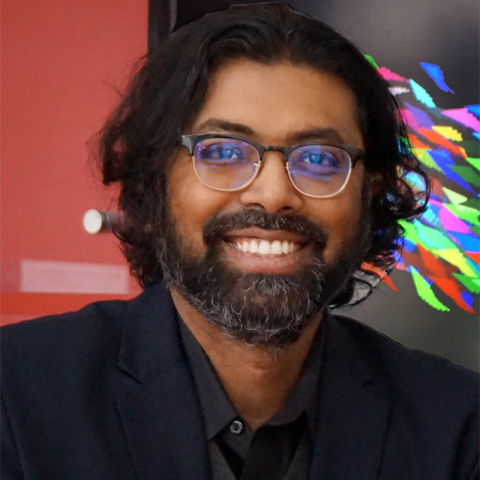

Dr. Pratim Sengupta
Dr. Pratim Sengupta is a professor of learning sciences and research chair of STEM education at the University of Calgary. His research and creative practice involves the creation of public technologies, spaces, and experiences of open source computational science through immersive, embodied, and collective engagement.
His work has been installed at the Cullman Research Gallery, MoMA, New York, Telus SPARK Science Centre, Studio Bell - The National Music Centre, and Banff Centre for Arts and Creativity. He is the recipient of the CAREER Award from the US National Science Foundation and a Paul D. Fleck fellowship from the Banff Center for Arts and Creativity.
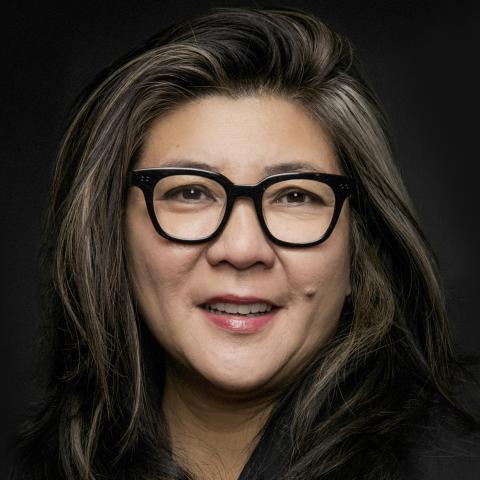

Ana Serrano
Ana Serrano is the Chief Digital Officer of the Canadian Film Centre and Founder of the CFC Media Lab, the world-renowned institute for interactive storytelling created in 1997. Most recently, she launched Canada's first digital entertainment accelerator IDEABOOST and serves as its Managing Director.
To date, Ana has directed the development of over 130 digital media projects, mentored over 50 start-ups, and has received numerous awards from the digital media, film, and theatre industries in both Canada and the U.S., including a Digital Media Trailblazing Award in 2015 from the Academy of Canadian Cinema & Television. In 2018, Ana received the insignia of Chevalier de l'Ordre des Arts et des Lettres (Order of Arts and Letters) from the French government. Alongside this deep experience in digital media and entertainment, Ana has been an active volunteer for numerous organizations. She currently sits as Co-Chair of the Open Democracy Project and as a board member of The Centre for Mindfulness Studies.
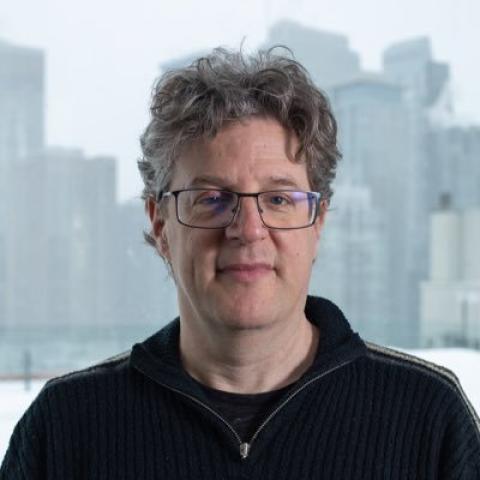

Bart Simon
Speaker
Bart Simon is co-founder and current director of the Milieux Institute for Arts, Culture, and Technology, and Associate Professor in the Department of Sociology and Anthropology at Concordia University. He is also co-founder of the Technoculture, Art and Games (TAG) Research Centre in Montréal. His areas of expertise include game studies and design, science and technology studies, and cultural sociology and his research includes a project on sustainability of indie game studios, scaling liveness in immersive theatre and games, and the material cultures of play.
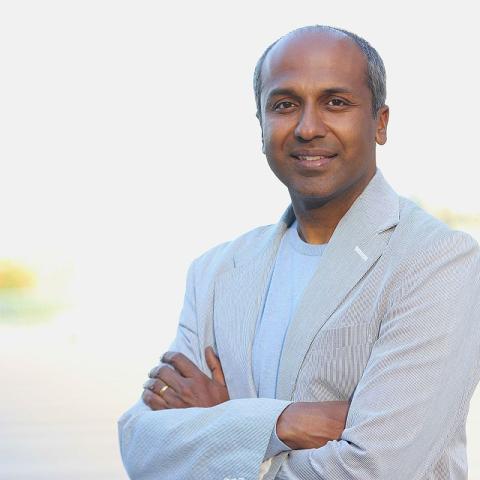

Sree Sreenivasan
Speaker
Sree Sreenivasan is the inaugural Marshall R. Loeb visiting professor of digital innovation at Stony Brook University School of Journalism, named for the legendary editor of Fortune magazine.
In addition, he is a leading consultant, speaker, and trainer for nonprofits, corporations, startup,s and executives. His recent clients include Hong Kong's West Kowloon Cultural District; UNHCR, the UN refugee agency; the Pulitzer Prizes; Louvre Abu Dhabi; TheWrap entertainment news; U.S. Holocaust Memorial Museum; American Museum of Natural History; National Ballet of Canada; various private companies and startups; and Global Teacher Prize, which gives one K-twelve teacher in the world $1 million.
He has been chief digital officer of major institutions in multiple industries: City of New York (working at City Hall); Columbia University; and the Metropolitan Museum of Art (leading a seventy-person team that helped keep the 150-year-old institution relevant in the smartphone age). Before joining the Met, he spent twenty years as a full-time professor at Columbia Journalism School.
He is cofounder of two journalism organizations: Online Journalists Assn (celebrating its 20th anniversary in September 2019; he was founding administrator of its prize program, the world's largest journalism awards program) and SAJA, the South Asian Journalists Assn, a group of 1,000+ journalists in the US and Canada (celebrating its 25th anniversary in October 2019).
He taught a course on entrepreneurship at Columbia for four years with Ken Lerer, the co-founder of Huffington Post, chairman of Buzzfeed, and co-founder of venture firm LererHippeau.
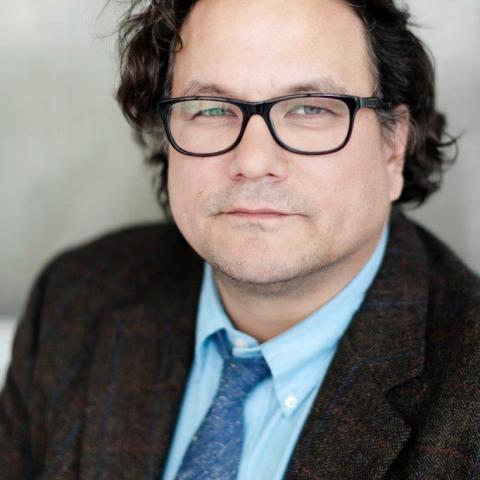

Jesse Wente
Director of Film Programs, Toronto International Film Festival
Jesse Wente is the Director of Film Programmes at TIFF Bell Lightbox, overseeing New Releases, series and TIFF Cinematheque programming and scheduling. His contributions to programming since the opening of TIFF Bell Lightbox in September 2010 include retrospectives on Roman Polanski, Paul Verhoeven, Ousmane Sembène, Oscar Micheaux, Studio Ghibli and Robert Altman. His first major curatorial project at TIFF Bell Lightbox was the landmark film programme First Peoples Cinema: 1500 Nations, One Tradition and its accompanying gallery exhibition, Home on Native Land, which took place in 2012. In the summer of 2013 he curated TOGA! The Reinvention of American Comedy which brought several of the key cast and crew members of Animal House together for an onstage reunion. Wente is co-organizer of Stanley Kubrick, the immensely popular exhibition that will have its Canadian premiere at TIFF Bell Lightbox in the fall of 2014. Prior to his appointment as Director of Film Programmes, Jesse Wente served as one of the Canadian features programmers for the Toronto International Film Festival and he has also programmed for the imagineNATIVE Film and Media Festival. He is well known as a film critic and broadcaster in Toronto and in Canada. Before joining TIFF, he was a weekly contributor to CBC Radio’s Metro Morning and covered film and pop culture for 20 other local CBC Radio programs. He has been a regular guest on CBC Newsworld’s News Morning and Weekend Edition, as well as Q, and TVO’s Saturday Night at the Movies.
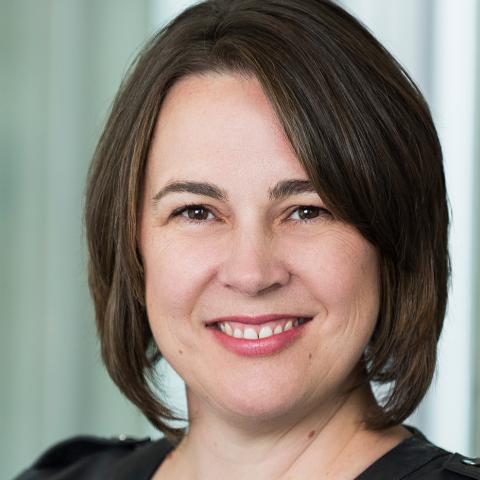

Kelly Wilhelm
Kelly Wilhelm is Chief Strategy Officer at the Canada Media Fund. She is an Ottawa-based strategist who works with organizations in the arts, media, creative industries, and philanthropy to envision, plan for, and execute change. A former public sector executive, Kelly brings a national perspective and more than 20 years’ experience in government, the nonprofit, and private sector to her work.
Kelly was Senior Policy Advisor to the Minister of Canadian Heritage from 2016-18, and was previously Director of Policy, Planning and Strategic Foresight at the Canada Council for the Arts. Recent projects include strategy work for Banff Centre for Arts and Creativity, the National Arts Centre, the City of Toronto, the Toronto Foundation, and the National Gallery of Canada. Kelly is a graduate of Queen’s University and has a master’s degree in Museum Studies from the University of Toronto.
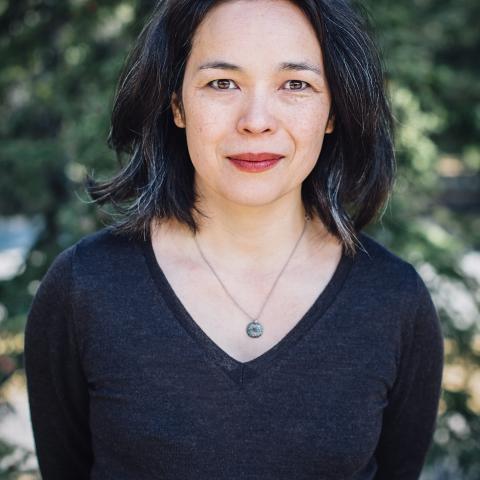

Adrienne Wong
Adrienne Wong's work straddles theatrical and digital space. She has performed in former morgues, current science centres, art galleries in the middle of the night, and at the National Arts Centre in Ottawa. Web projects include The Apology Generator, which earned her the inaugural Artist in Residence position on CBC Radio's Q, and SadSongs.ca, commissioned by Nightswimming Theatre in Toronto.
Other radio work includes writing, performing in and directing plays, and contributing to North by Northwest and The Afternoon Show, all out of CBC Radio Vancouver. Landline (created with Dustin Harvey) is a performance for audio recording and SMS that toured nationally and internationally for five years. Me On The Map (created with JD [Jan] Derbyshire) is a kids’ show about urban planning and collective decision-making. It received a Jessie Richardson Theatre Award nomination in Vancouver and was selected for the Banff Centre for Arts and Creativity 2017 Playwrights Lab. Adrienne's writing has been published in Canadian Theatre Review, CdnTimes, and the anthology Asian Canadian Theatre.
Adrienne was Artistic Producer at Neworld Theatre in Vancouver until 2013, where she commissioned and produced 11 "podplays" in partnership with Playwrights Theatre Centre and Martin Kinch. Currently, she is Artistic Producer of SWS Performance, Festival Director of the Festival of Live Digital Art (foldA). Now living in Banff, Alberta, Adrienne holds a BFA from Simon Fraser University's School for the Contemporary Arts.
Artists
Kathryn Blair
Kathryn Blair completed her Master of Fine Arts at the University of Calgary in 2018 and has entered the PhD program in Computational Media Design there. She obtained her BFA Honours in Visual Art from the University of British Columbia in 2009. Her work seeks to facilitate public examination of the status quo of our relationship with technology by throwing it into stark relief. Currently, she creates interactive experiences that invite visitors to play with ideas about the way computer programs used to make decisions about the public function. In the past, she has used media including wearable technology, physical computing, games and printmaking to explore these themes. She has been involved in the Calgary-based tech couture fashion show Make Fashion since 2013, and has shown her wearable technology work in British Columbia, China, the United States and Ireland.

Émilie Brout and Maxime Marion

Émilie Brout and Maxime Marion
Artists
Born in 1984 and 1982, Émilie Brout and Maxime Marion live and work in Paris. After studying at ENSA Nancy and ESA in Aix-en-Provence, they joined for two years the EnsadLab research laboratory of the Ecole Nationale Supérieure des Arts Décoratifs in Paris, where their collaboration began.
Their work was awarded by the François Schneider Foundation Prize (2011), the Arte Laguna Digital Art Prize (2014) and the Sciences Po Public Prize for Contemporary Art (2019), and is part of the FRAC Aquitaine and Poitou-Charentes collections. It has been exhibited in France and abroad: MAC VAL, Vitry-sur-Seine; Cité de la Céramique, Sèvres; IAC Villeurbanne; FRAC Haute-Normandie, Rouen; Base sous-marine de Bordeaux; 5th Moscow Biennale for Young Art; Museum of Modern and Contemporary Art, Rijeka; Carroll / Fletcher, London; The Loft / Servais Family Collection, Brussels; Frederic de Goldschmidt Collection, Brussels; OCAT Shenzhen; Daegu Art Museum; Kunstraum LLC, New York, and Redline Contemporary Art Center, Denver.
They recently benefited from solo exhibitions at La Chaufferie, Strasbourg (2019), 22.48 m² gallery, Paris (2019), Villa du Parc, Annemasse (2018), Pori Art Museum, Pori (2018), and Steve Turner Gallery, Los Angeles (2017).
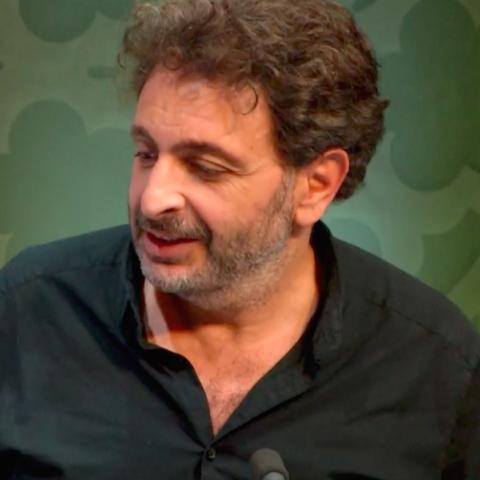

David Guez
Artist
Since 1994, David Guez has created artwork related to new media and digital forms such as performances, installations, objects, and websites. All his projects are driven by two main notions: link and public. These two approaches enabled him to create objects and matrices that question contemporary subjects and their application or their link with new technologies. He deals with topics as varied as free media, psychoanalysis, time, collective uses of the internet, identity problems and loss of liberty, virtual reality, blockchain, and artificial intelligence.
His latest projects are VRLAB.FR. a platform dedicated to art and virtual reality; KRONOS, a new currency based on time under the blockchain protocol, and ELIOTE, a collective intelligence fighting artificial intelligence.
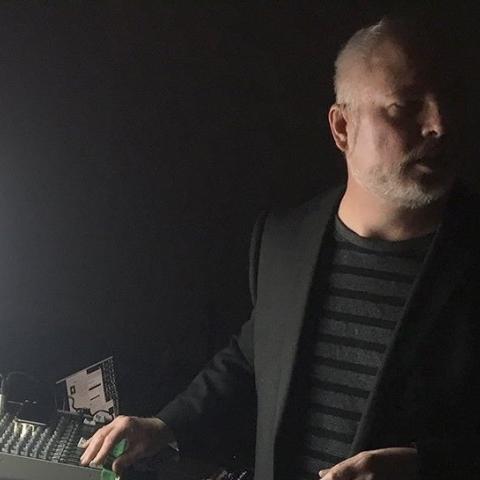

Gary James Joynes
Artist
Gary James Joynes (aka Clinker) is an award-winning visual and sound artist that has been active in the international live audio-visual and experimental music performance community for many years. He blends the beauty and physicality of sounds auditory and visual elements in Live Cinema AV performances and in rigorous and emotional photo and video installation works.
Joynes is currently developing his next large-scale immersive audio and visual installation entitled The Crepuscular Sound Ray Reflecting Pool ((( Sonic Suns, Sonar Winds, Wings & Sound Beams ))) which will premiere in June of 2020 in Edmonton. This new work will expand on his cymatic-based works revealing a new artistic vocabulary revealing the visualization of sound through projected light.
In May of 2015 Joynes’ premiered his award-winning large-scale solo installation work entitled Broken Sound. Broken Sound was awarded the 2016 Eldon & Ann Foote Edmonton Visual Arts prize for 2015 Best solo art show. His previous solo show entitled Topographic Sound in early 2013 showed his critically acclaimed work Ouroboros which had its large-scale premiere as a featured work in City Hall at the inaugural Nuit Blanche Edmonton Festival in September 2015.
Recent Live Cinema performances include MYSTERIES OF THE DEEP (New York), DAT CONFERENCE (Missoula), ELEKTRA16 (Montreal), INDUSTRY BRUNCH (Detroit / Chicago), CMKY (Boulder, USA), New Forms 14 (Vancouver), MUTEK_IMG (Montreal), SoundsLike (Saskatoon), Koffler Centre (Toronto), Electric Fields (Ottawa), Roulette Mixology Festival (New York), Soundasaurus (Calgary), and MUTEK_10 (Montreal).
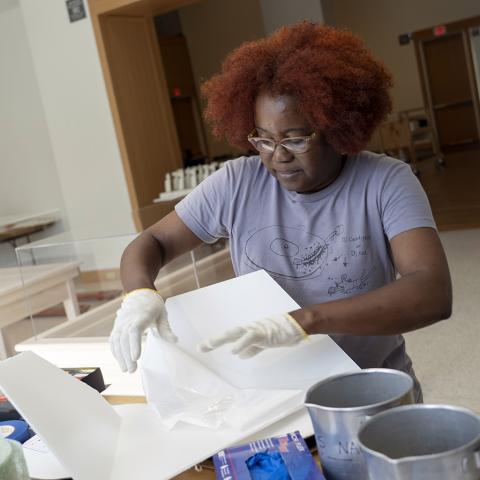

Fatimah Tuggar
Multidisciplinary artist Fatimah Tuggar was born in Nigeria and raised there and in the United Kingdom. She has studied, lived, and worked in US and Canada since the late 80’s. Her work uses technology as both medium and subject to serve as metaphors for power dynamics. She combines objects, images, and sounds from diverse cultures, geographies, and histories to comment on how media and technology diversely impacts local and global realities.
Tuggar’s work has been widely exhibited at international venues in over twenty-five countries. Her art education covers three continents and a broader range of disciplines, traditions, processes, and materials. Her work has been the subject of various panels and articles. Her body of work has also been integrated as parts of academic curricula, in multiple disciplines and discussions, including technology, new media, politics, cultural studies, feminism, diaspora, globalisation, anthropology, social justice, sculpture, interactive media, photography, and video among others.
She has been a recipient of awards and commissions including fellowships from the Guggenheim Foundation, Charlotte Street Foundation, W.A Mellon fellowship at Franklin Humanities Institute at Duke University, and Civitella Ranieri, Umbertide, Umbria, Italy. She has produced commissioned works for Museum of Modern Art, New York; the Bronx Museum of the Arts; New York and Nordic Institute of Contemporary Art, Copenhagen, Denmark; and the Spencer Museum of Art in Lawrence, Kansas; among others.
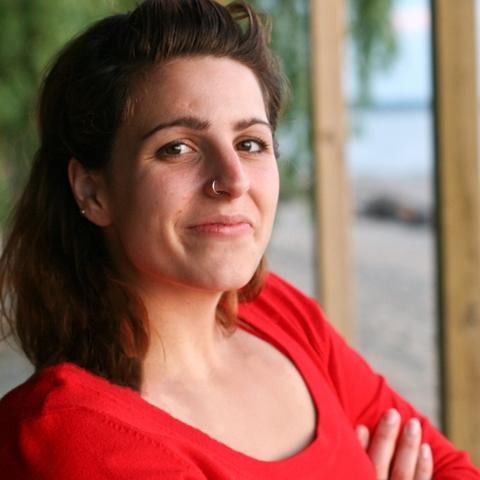

Rachel Yezbick
Rachel Yezbick
Rachel Yezbick is a visual artist who uses her anthropological training to inform the social issues she tackles as a maker. Her curiosity about group identity under late-capitalism has taken her around the globe, researching local histories through the aspirational behaviours of the participants in her films and performances.
Rachel creates work in a variety of mediums that have garnered support from audiences and curators internationally. She is a published author and recent recipient of an Australia Council for the Arts grant. Most recently, she was commissioned to create a new performance work through Gertrude Contemporary in Melbourne. She has worked as a public programmer for New Frontier and Sundance Institute, moderated panels with esteemed pioneers in art and technology such as Scott Snibbe and Suzanne Anker, and taught at numerous colleges and universities.
Rachel has had solo exhibitions in Glasgow, Los Angeles, and Stuttgart as well as group exhibitions around the world, most notably at the Los Angeles Philharmonic, Glasgow International, REDCAT, the Akademie Schloss Solitude, Gertrude Contemporary, and Liquid Architecture. rachelyezbick.com


